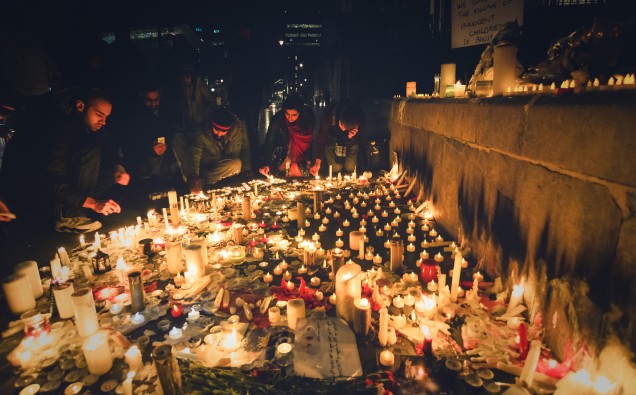
Since that chilling morning last year, December 16 has become a date for self-examination for two reasons. Until last year, it was a day of somber reflection for thinking Pakistanis, as it marked the fall of Dhaka in 1971 following Indian military intervention in the then East Pakistan. But on December 16, 2014, terrorism inflicting Pakistan in the post-9/11 years, took an unprecedented turn, when a group of foreign terrorists – later identified as three Arabs, two Afghans and a Chechan – entered the Army Public School on Warsak Road, Peshawar. Their gun rampage – claimed by terrorist group Tehreek-e-Taliban Pakistan – mercilessly mowed down more than 140 lives, including teachers and 132 students in the northwestern city and capital of Khyber Pakhtunkhawa – Pakistan’s frontline in the fight against terror.
All seven terrorists were killed by Pakistani armed forces during the rescue operation. This was deadliest terrorist attack ever to hit Pakistan, surpassing the 2007 Karachi bombing.The horrible killing of innocent children drew widespread international condemnation. The nature and preparation of the attack was very eerily similar to that of the Beslan school hostage crisis that occurred in the North Ossetia-Alania region of the Russian Federation in 2004.
In Pakistan, this was not the first terrorist attack that targeted army families. On December 3, 2009, the firing on Parade Lane in Rawalpindi had resulted in the killing of 40 persons, mainly relatives of the army officers.
But the December 16 heartbreaking attack on the APS led to some key Pakistani decisions that have pushed the country’s fight against militants to their strongholds and beyond. The carnage saw several Pakistani teachers emerge as heroes in defense of their students. Principal Tahira Qazi laid down her life challenging the killers that they will have to fight her first because she is like mother to her students. She was awarded Sitara-e-Shujaat posthumously.
The school attack was a retaliatory move as well as a devious plan to strike fear in the hearts of Pakistani citizens – if a relative of army officer can die in a terrorist act in a secure area, a civilian would be much more vulnerable.
The APS attack, along with December 27, 2007 killing of former prime minister Benazir Bhutto, has fortified Pakistan’s resolve to root out terrorism from its soil. But deepening insecurity in Afghanistan, continuation of the Afghan Taliban insurgency, and the emergence of ISIS or Daesh threat in Afghanistan, and homegrown challenges, mean Islamabad will have to persist in its counterterrorism efforts for the foreseeable future. Pakistani intelligence has traced the APS attacks to TTP leader Mullah Fazalullah, who continues to hide in Afghanistan. A political solution to the Afghan instability also faces hurdles. Indian interference in both Pakistan and Afghanistan has multiplied terror challenges.
In Pakistan, cities have been in in a state of heightened internal security gear since the TTP began a brutal insurgency in tribal areas about seven years ago. A person visiting the metropolitan cities like Lahore, Karachi and Islamabad after a decade, would find virtually garrison towns, all the major offices guarded by army and the paramilitary forces like rangers.
Politically, the gravity of the Army Public School massacre was so enormous that PML (N)-led federal government and the PTI-dominated KPK government came on the same page, shunning their diametrically opposed differences. Chairman of PTI Imran Khan announced to postpone the ‘Lock out Pakistan Campaign’ and decided to sit with the federal government to respond to the incident in a decisive manner.
For most of the Pakistanis, the attack was a 9/11 tragedy, as it had given a whole new dimension to the mood of the nation, which has been one of the biggest victims of terror in recent times, and the images of death and destruction hardened the people’s resolve to combat terror. A day after the incident, Prime Minister Sharif announced to lift moratorium on the execution of terrorists and murderers that had been in place since 2008. Since then, dozens of terrorists have been hanged in high-security prisons across the country. Some convicts in December 16 killings were hanged this month.
A National Action Plan was formulated with consensus among all stakeholders. The elected leaders green lighted special military courts to prosecute terrorists, whose convictions faced delays due to threats of reprisals.
Under General Raheel Sharif, the army chief, Pakistani forces intensified the ongoing operation Zarb-e-Azb and Operation Khyber to smoke out the terrorists from their hideouts. The counterterrorism operations have extended to the cities like Karachi, Lahore, Rawalpindi, Multan, Quetta and Peshawar where hundreds of sympathizers have been nabbed by the law enforcing agencies over the last one year. A number of non-governmental organizations, allegedly having links with the banned religious outfits have barred from collecting donations in a bid to stop terror financing. A de-weaponization campaign in all the four provinces has been launched.
To neutralize terrorists and their sympathizers, the armed forces with the help of police and other civilian agencies are carrying out operations on a daily basis.
Will this campaign against the terrorists in the post-APS incident, bring peace to Pakistan? Much will depend on how political parties and armed forces work in unison, and also involve civil society to offset violent extremism with a holistic approach. Only a complete implementation of National Action Plan will increase Pakistan’s prospects of success in the fight against terror.
FEATURED IMAGE above is a candlelight vigil in London for victims of Dec. 16, 2014 masscre, Photo Credit : Kashif Haque via Creativecommons













Good analysis of the situation by the writer. I hope the terrorists can be eradicated completely from our society. The blood of these innocent souls will not be wasted.
I pray for each departed soul and their families on the first anniversary of APS attack.